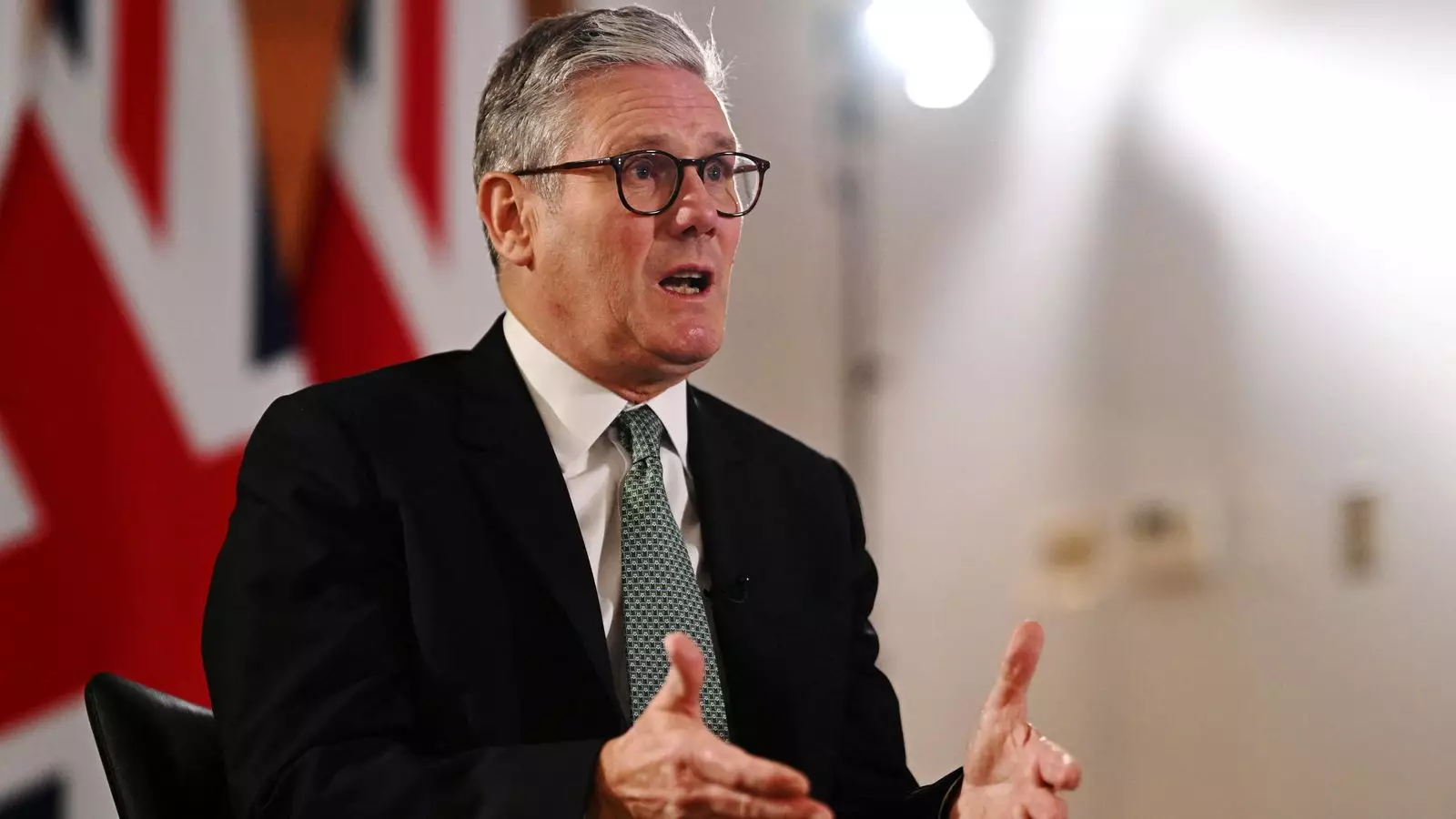In recent developments, Sir Keir Starmer, the leader of the UK Labour Party, has found himself under scrutiny for accepting significant financial support during a crucial election period. This financial assistance centers around a donation amounting to £20,437.28 for lodging, extended by Lord Waheed Alli. As the political landscape becomes increasingly contentious, Starmer’s acceptance of such donations raises critical questions about the intersection of personal obligations, public service, and ethical standards in politics.
The timing of this acceptance coincides with not just a national election but also a pivotal moment in Starmer’s family’s life—his 16-year-old son was preparing for his GCSE exams. Starmer stated he made a commitment to his family to shield them from the upheaval of intense media attention and protests that followed the announcement of the election. This promise reflects not only a father’s instinct to protect but also underscores the deep personal sacrifices public figures often make in their professional lives.
Starmer’s justifications come amid a chorus of criticism regarding his increasingly lucrative connections in the political arena. Critics argue that while the need for a private space for his son to study is understandable, the acceptance of funds from wealthy donors such as Lord Alli raises ethical dilemmas. Starmer’s assertions that “no money exchanged hands” do little to assuage concerns about the potential for these financial connections to impact political decisions.
The Labour leader’s recent Sky News interview demonstrates a defensive posture, as he attempts to convey the human narrative lying behind his financial disclosures. Yet, this framing does little to alleviate the broader implications of his acceptance of donations, particularly when juxtaposed against his prior critiques of the Conservative Party’s financial ethos. The perception that he is benefiting from the same systems he has condemned creates a troubling dichotomy.
Moreover, Sir Keir’s case is not isolated; it reflects a pervasive issue within the UK political landscape regarding the influence of money in politics. The same scrutiny extends to questions about whether current donation practices need reevaluation. The upcoming budget changes, anticipated to impose new taxation rules, create an environment ripe for discussing the propriety of wealth in political fundraising.
The statistics paint a stark picture: Starmer has accepted donations amounting to two and a half times more than any other Member of Parliament. While he attempts to position this as a byproduct of his commitment to transparency, it draws attention to the fear that political allegiance may now be swayed by donor influence rather than constituent needs. This realization necessitates a critical dialogue about campaign financing in the UK—should donations, particularly large ones, be subjected to stricter regulations?
The relationships forged between politicians and wealthy donors like Lord Alli raise fundamental questions about trust and integrity within governance. Starmer, accepting high-value donations from individuals with substantial business interests, is undoubtedly attempting to navigate the tension between personal ethics and political expediency. However, if these connections are perceived as a means of obtaining undue influence, they risk alienating the very electorate a leader must rely on for support.
The political landscape does not exist in a vacuum; rather, it is a constantly evolving interplay of obligation and expectation. When a leader like Starmer becomes the focal point of criticism for his donation practices, it serves as a reflection of the broader public disillusionment with politics as usual. To regain trust, political leaders must not only declare their associations but also strive to assure the public that their decisions remain untethered from external financial influences.
Sir Keir Starmer’s experience accentuates the inherent complexities of navigating family commitments while maintaining a political career. However, it is also a signal for reform in how political financing is managed. As public scrutiny of donations intensifies, politicians must maneuver thoughtfully, ensuring a clear boundary exists between financial contributions and the ethical conduct expected from their offices. Ultimately, the future of UK politics could depend on resolving these intricate ethical dilemmas, reinforcing the need for transparency and accountability in political donations.


Leave a Reply